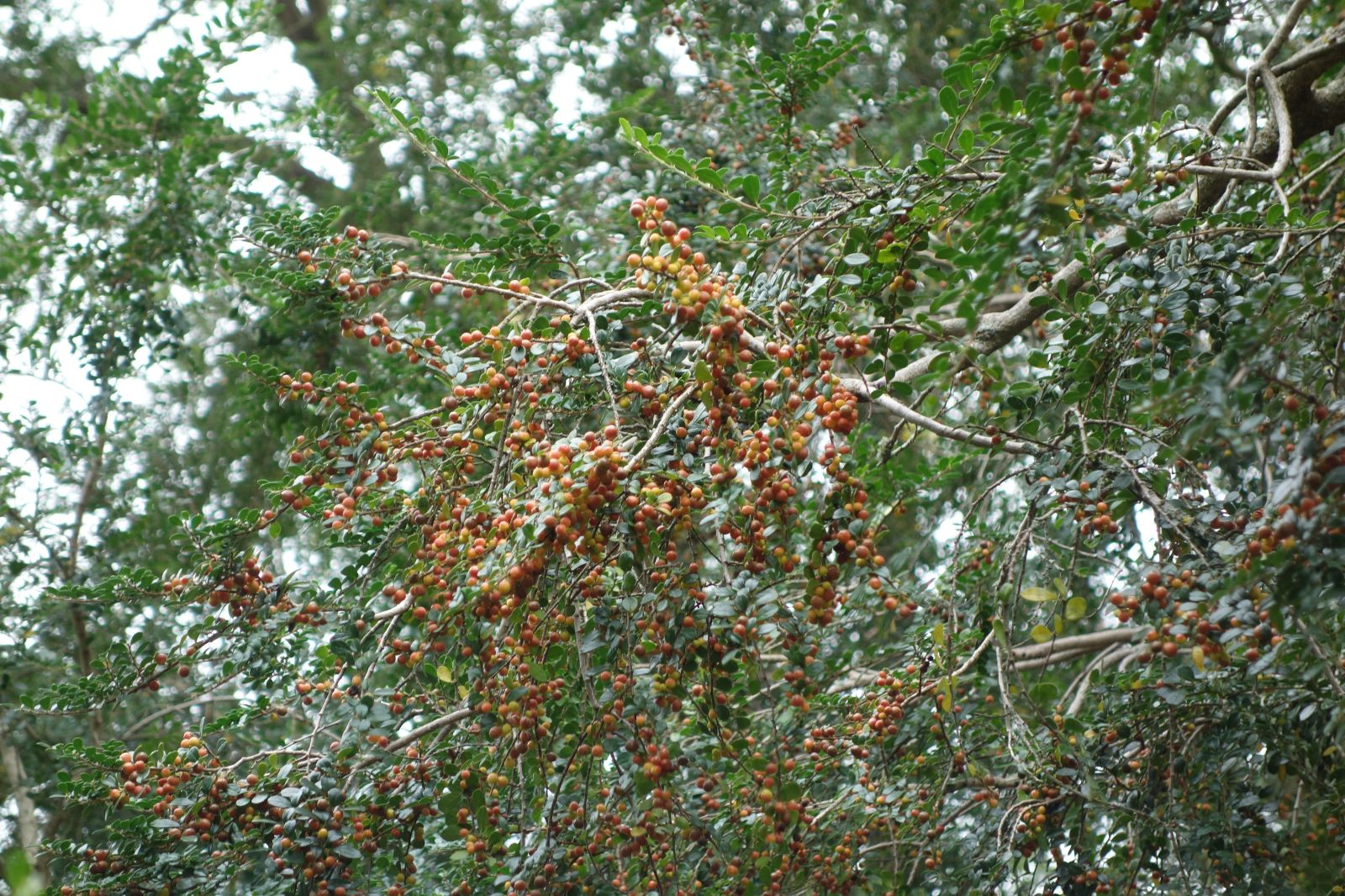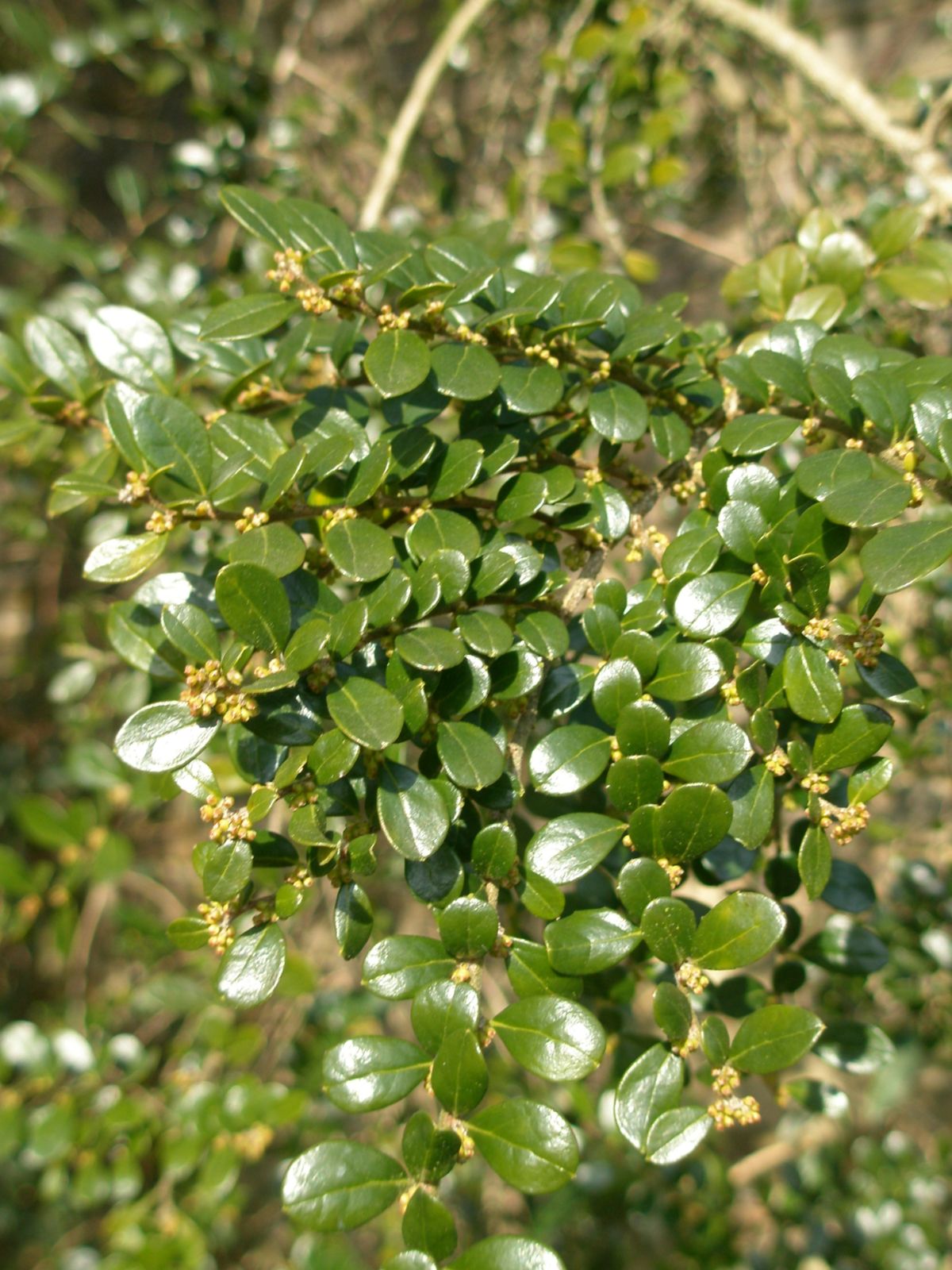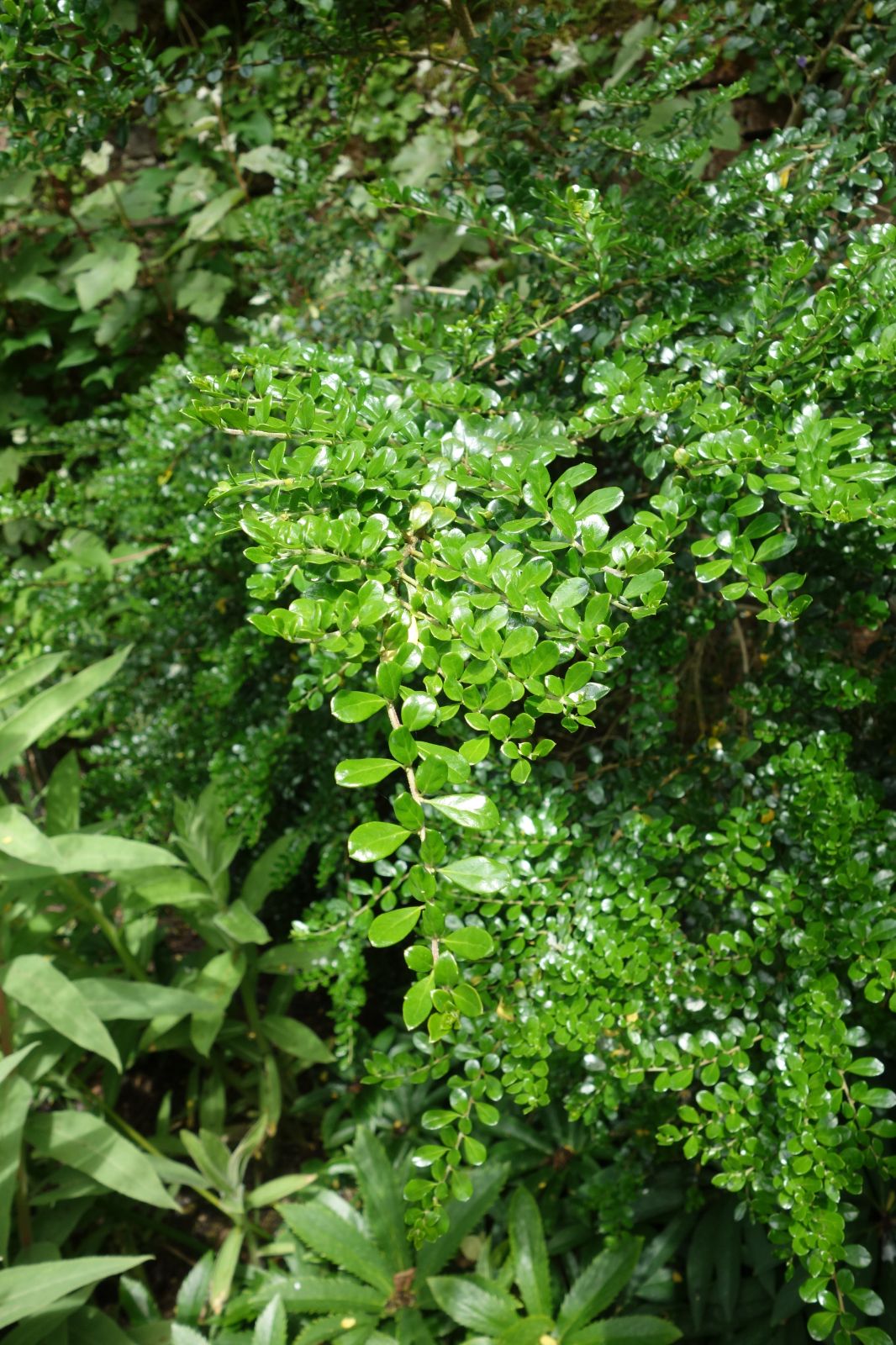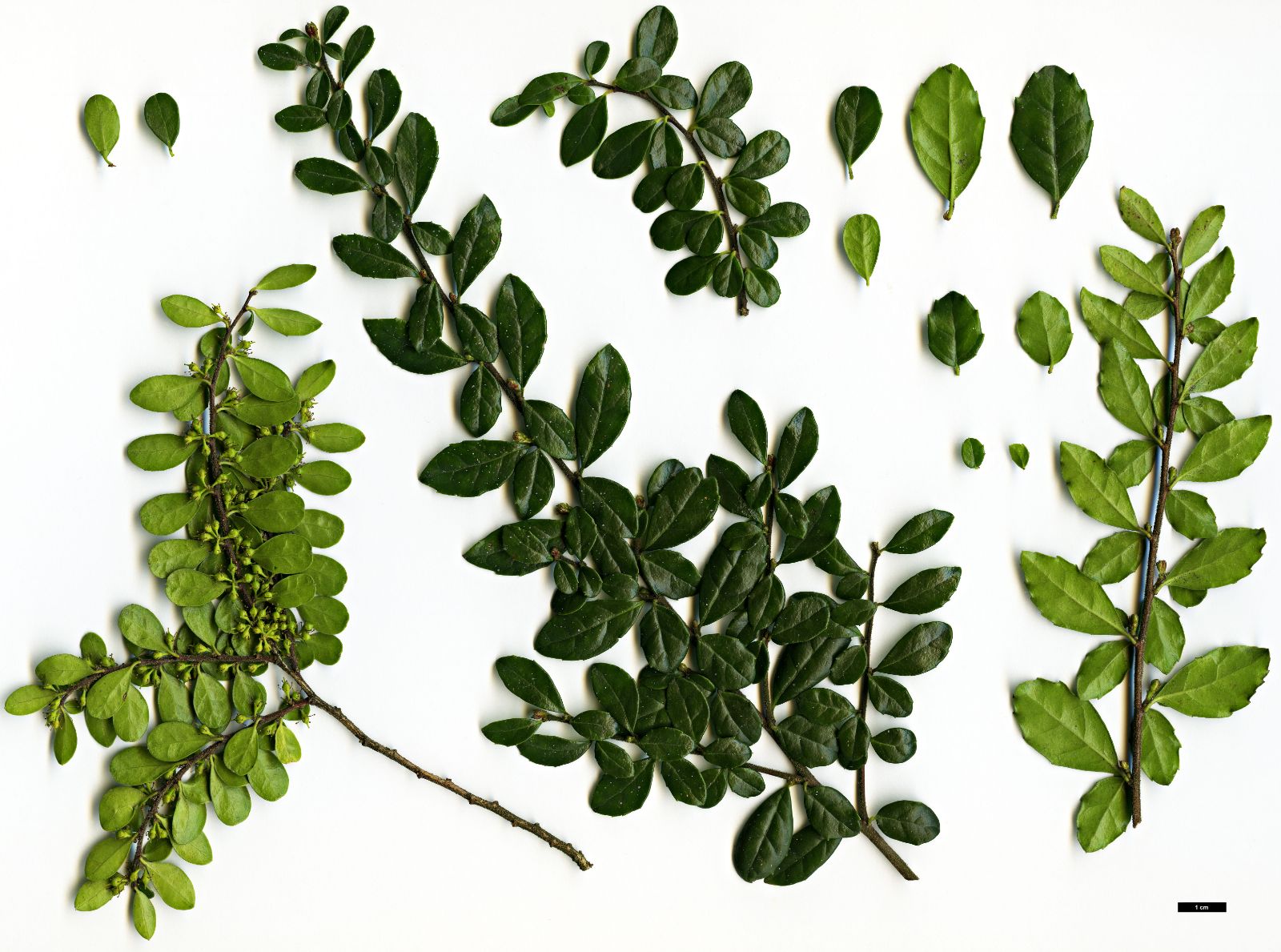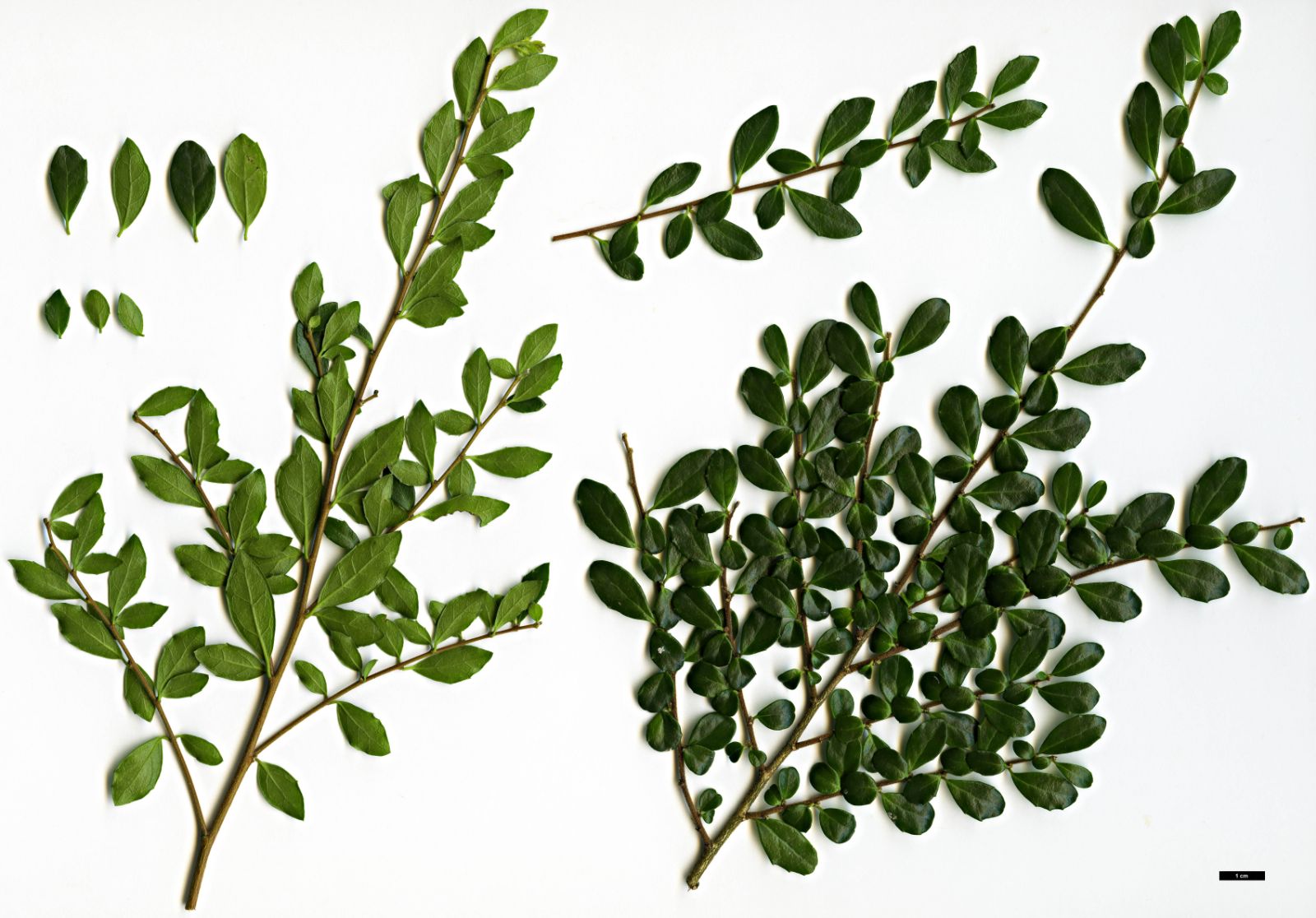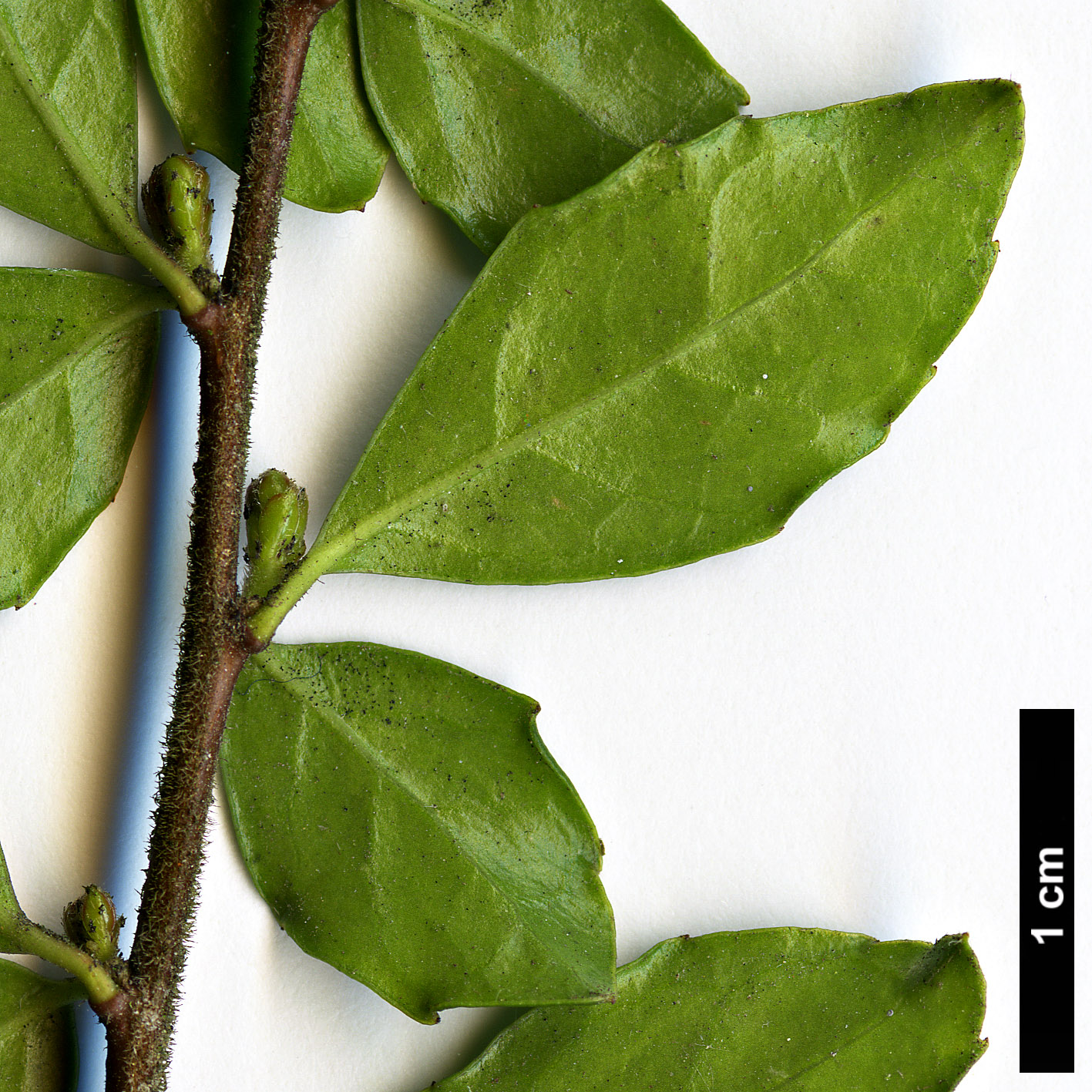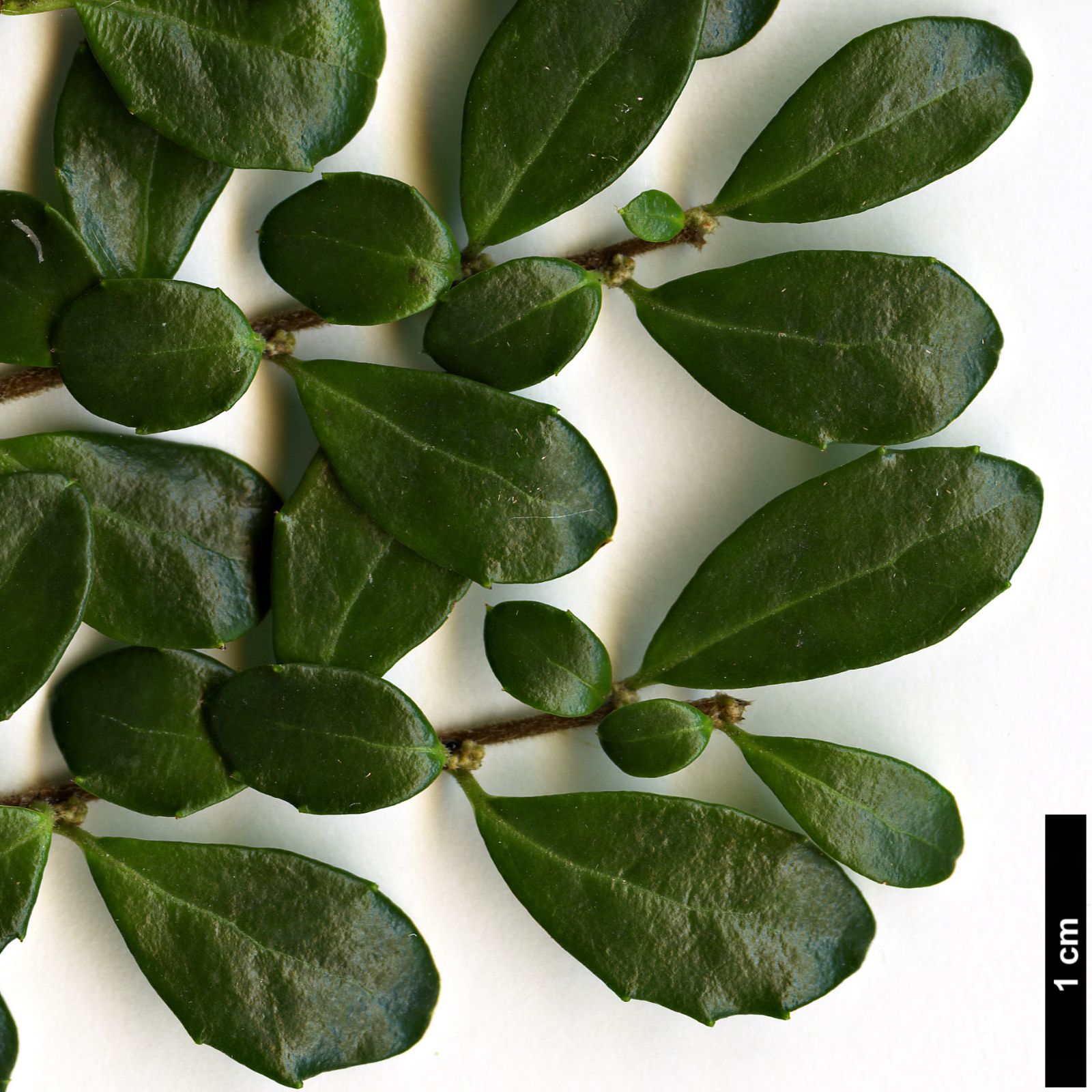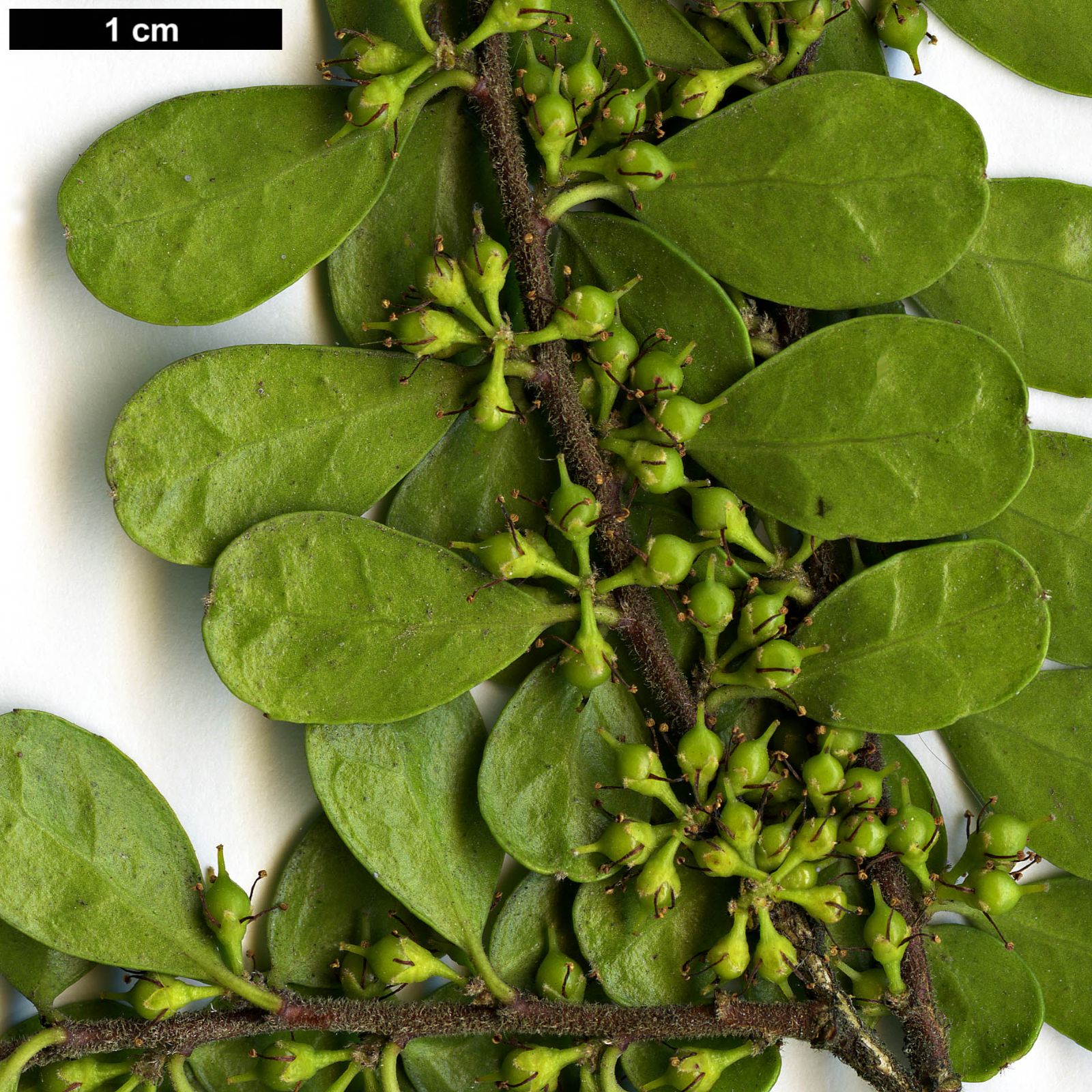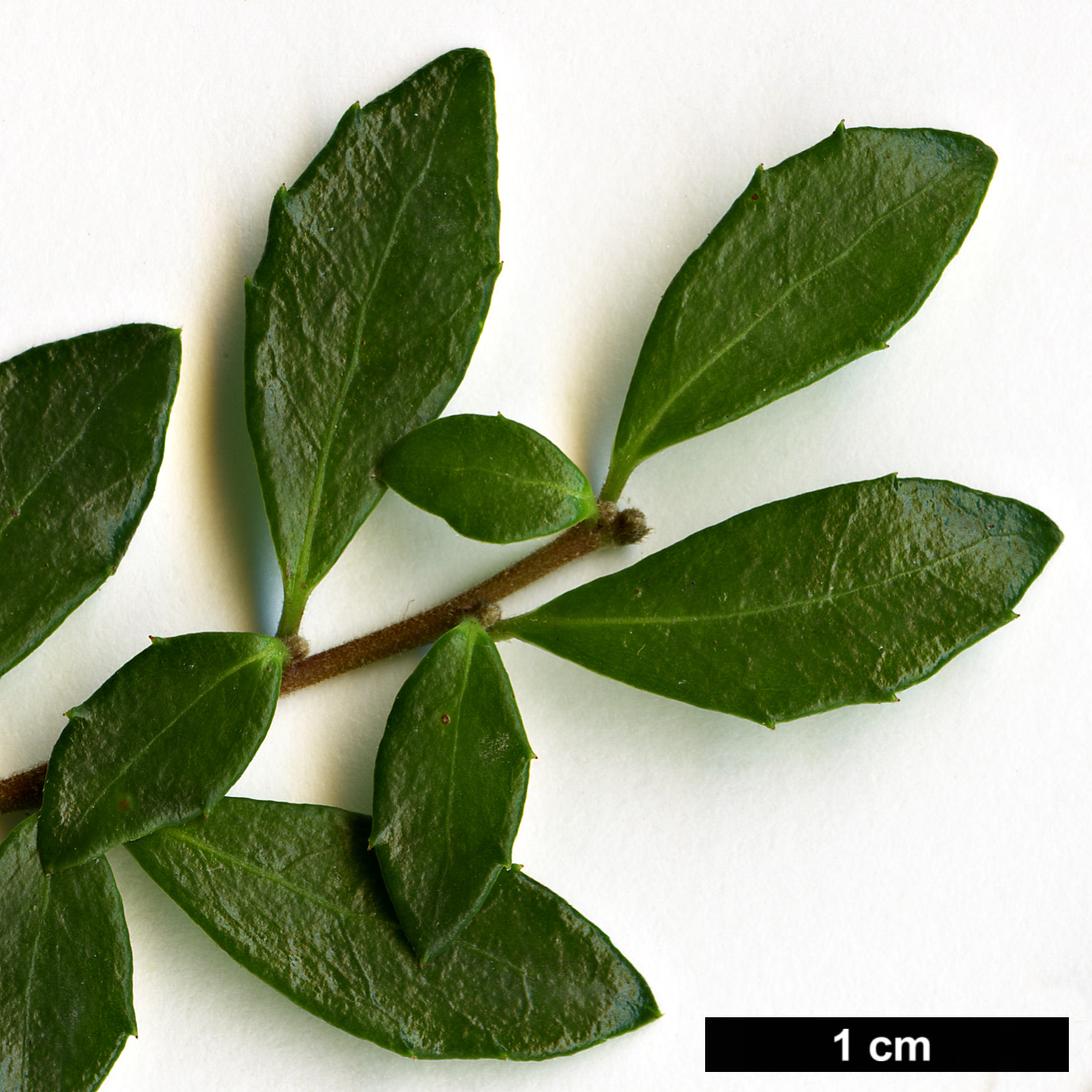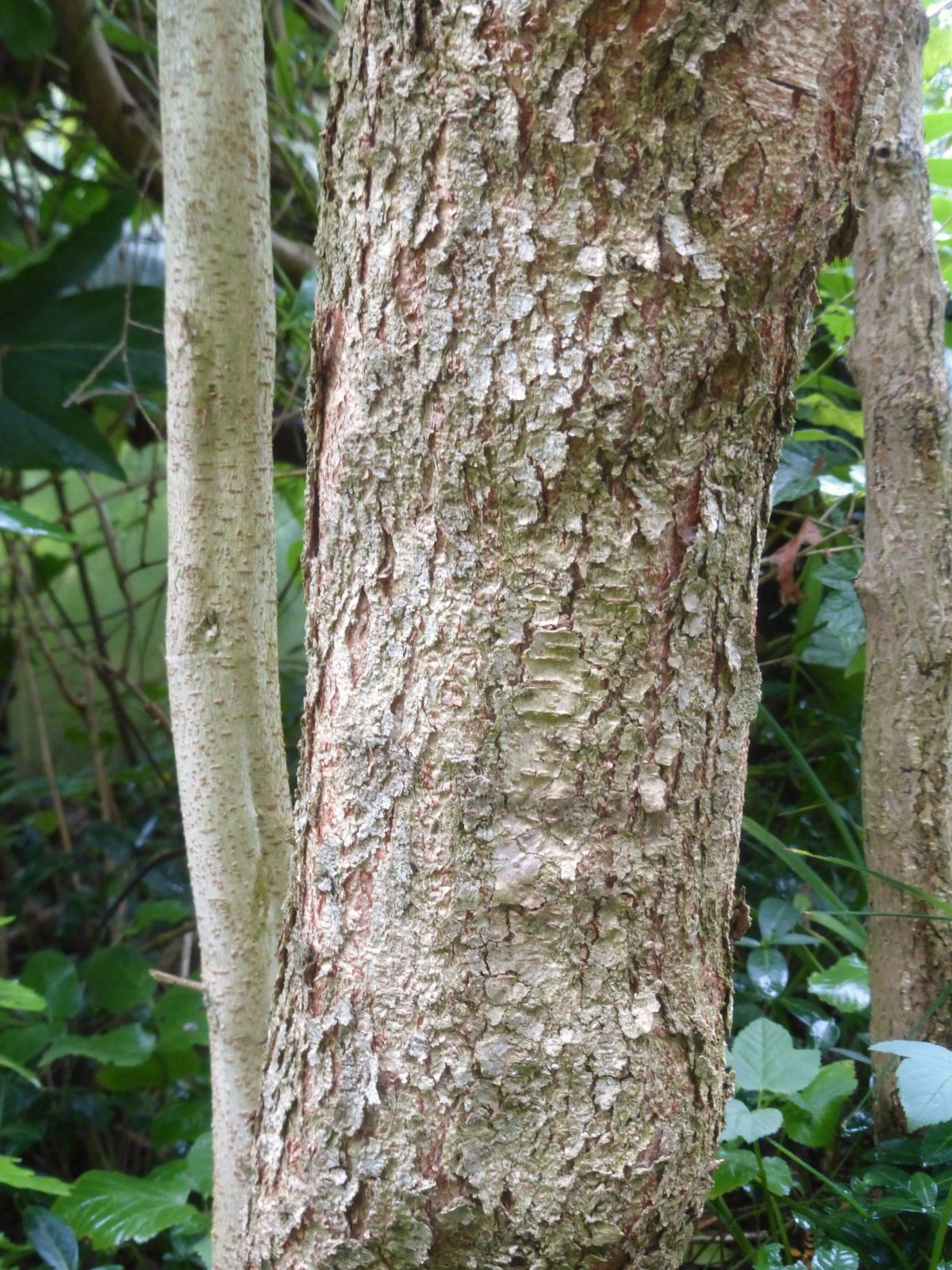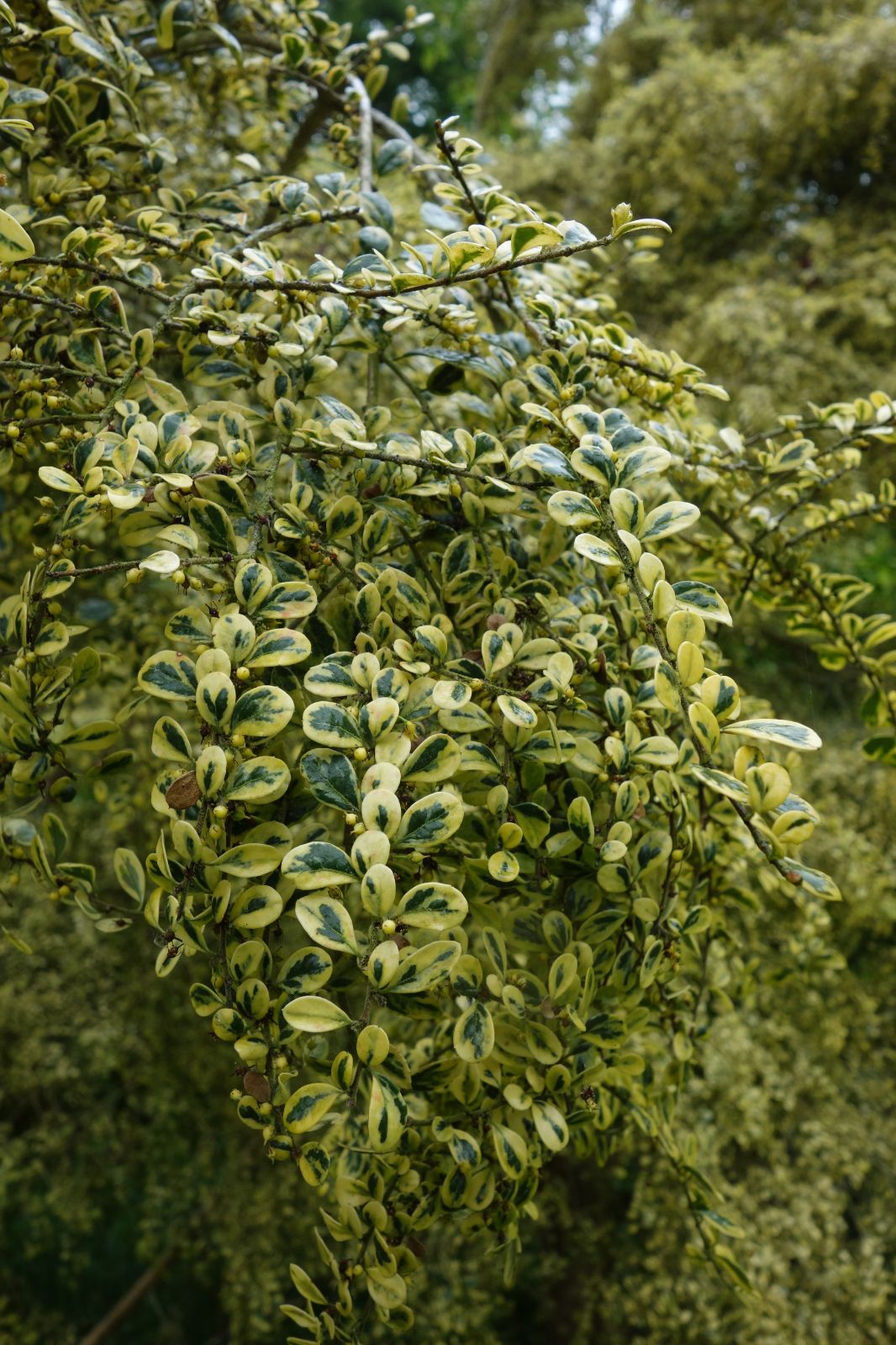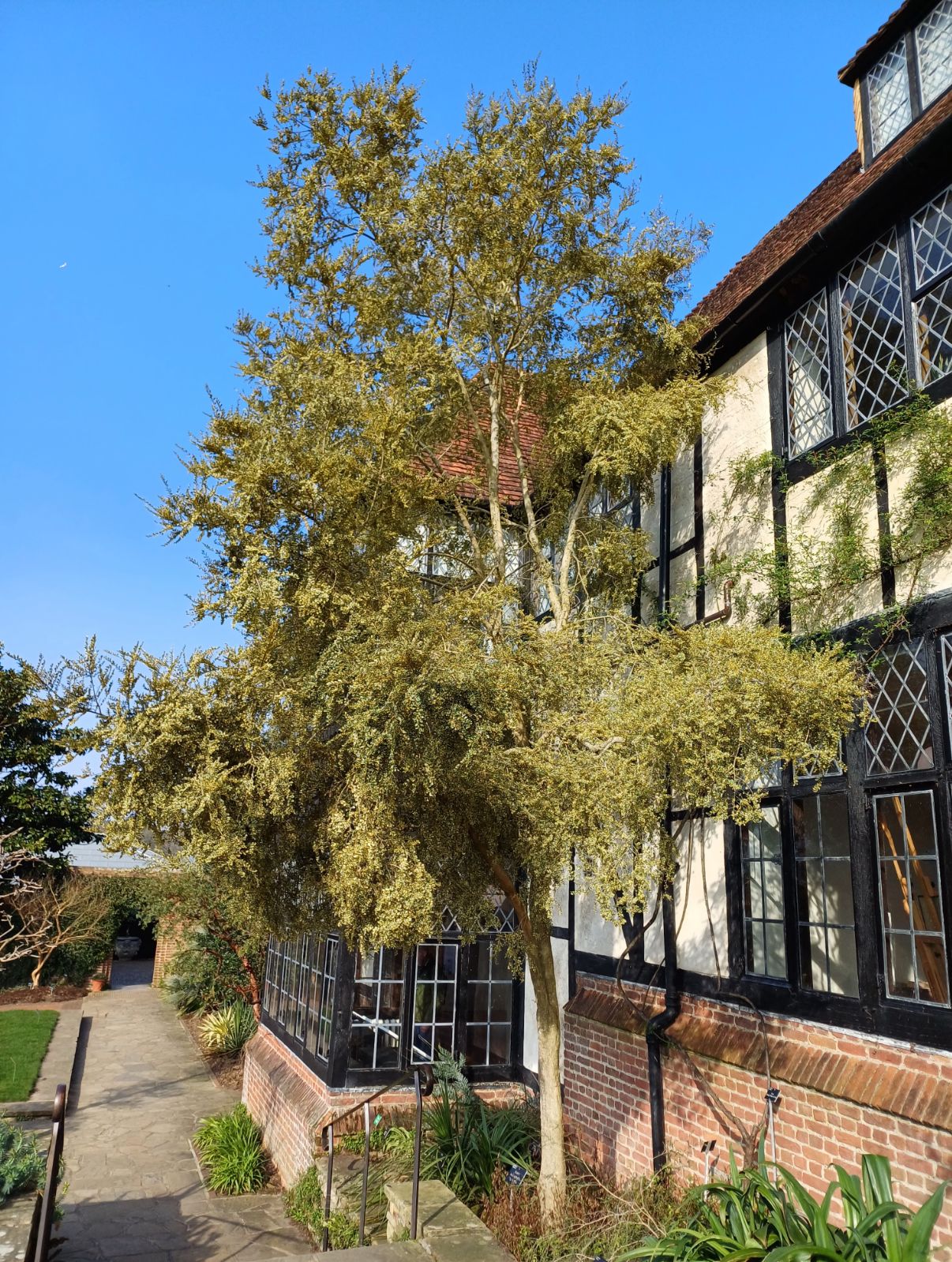Azara microphylla
Credits
Article from Bean's Trees and Shrubs Hardy in the British Isles
Recommended citation
'Azara microphylla' from the website Trees and Shrubs Online (treesandshrubsonline.
Genus
Infraspecifics
Other taxa in genus
An evergreen shrub or small tree, the branchlets covered with a very dense dark down, and arranged on the same plane in two opposite rows. Leaves shining dark green, small, very abundant, apparently in pairs, one of each pair being about thrice as large as the other; the true leaves are obovate, 1⁄2 to 1 in. long, usually more or less toothed; the smaller ‘leaves’ (stipules) more rounded. Flowers tiny, numerous, fragrant, borne in clusters at the leaf-axils; sepals green, the more conspicuous stamens deep yellow. Fruit a small, red, globose berry.
Native of Chile and bordering parts of Argentina; introduced by Richard Pearce about 1861, when collecting for Veitch’s nurseries. In nature it is a fairly faithful associate of the deciduous and hardy Nothofagus obliqua, which grows where the local climate is somewhat drier and less equable than it is in the region of the fully evergreen rain-forest. It is a delightful small tree which even at Belvoir in Leicestershire has reached nearly 20 ft in height, and considerably more in the west of England. The flowers open in February if the weather is mild, later if severe; and their vanilla-like fragrance is perceptible yards away from the bush.
Although not so hardy as to be altogether free of the danger of severe damage in such a winter as that of 1962–3, it will come through most winters unharmed or with nothing worse than the loss of the youngest growths. At Kew, a plant was cut to the ground in the exceptionally frosty February of 1895, but no damage of such severity has been experienced since then. Unlike most evergreens of the forests of the southern hemisphere, A. microphylla grows well in the eastern Midlands and in E. Anglia. It has, for example, thrived for many years in the nurseries of Messrs Nottcutt at Woodbridge, Suffolk, and Mr Maurice Mason tells us he has found it hardy in his garden near King’s Lynn, Norfolk.
'Variegata'
Leaves unevenly and broadly edged with creamy white, making it one of the daintiest of variegated small trees. There is a fine example on a north-east wall at Rowallane, Co. Down, 22 ft high, now recovered from the damage suffered in 1962–3.

